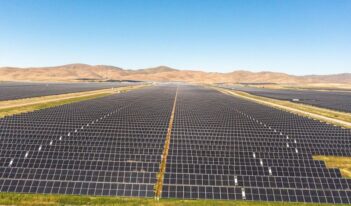
Addressing social problems through utility regulation may lead to inefficiency and unfairness.
A current regulatory policy issue in the United States and other countries centers on the business model of utilities and, in particular, the extent to which utilities should broaden their activities to satisfy society-wide political demands.
Some observers have criticized an expansive role for utilities—in line with environmental, social and governance (ESG) principles—as leading to higher electricity prices and a compromise of traditional regulatory objectives, such as cost-based rates, consumer protection, least-cost utility operations, and adequate service reliability.
Public utility regulation falls within the domain of economic regulation meant to protect consumers from the monopoly power that utilities often hold. The presumptions are that (1) public utilities provide essential services that require strong service obligations and price controls, and (2) a single private firm—namely, a natural monopoly—would be preferable to allowing the entry of a number of potentially competing firms.
Since the turn of this century, state utility regulators have exhibited much more political posturing that deviates from their original mission, often mandated or coerced by legislatures and governors. This posturing has driven up electricity rates as utilities have engaged in activities divorced from their primary obligation to advance the long-term welfare of their customers.
The upswing in special interest demands in most states comes from clean air advocates, energy vendors, and others who are not utility customers. Their presence in the regulatory arena has expanded to the detriment of utility customers.
Some interest groups regard anything less than a maximal effort to tackle climate change and achieve a net-zero carbon future as a social injustice. But a fixation on these objectives has threatened long-held, utility-regulation objectives, such as reasonable and stable utility rates, economic growth, and reliable utility service.
California and several other states have traveled down this primrose path. As reported by S&P Global, “electric rates surged 63 percent in the San Diego area, 44 percent in the San Francisco area and 39 percent in the Los Angeles area between 2020 and 2023, far outpacing the still-steep 24 percent rise in U.S. cities on average, according to data from the US Bureau of Labor Statistics.”
The politicization of utility regulation—that is, using regulators to gain favors—means more special-interest influence with the potential to jeopardize the public interest through several mechanisms, including by: (1) placing added emphasis on myopic effects; (2) making execution of the “balancing act” long managed by regulators more difficult by introducing new interests and social objectives; (3) departing from the charge of regulators to serve the long-term interest of utility customers; (4) escalating rent-seeking costs and increasing the likelihood of subsidies and mandates; and (5) spreading the costs and risks of uneconomical, politically driven investments to utility customers.
Although politicization does not inevitably mean harm to society, it typically ends with one interest group unduly affecting governmental action in ways that compromise the public good.
Who are the culprits? Let us start with the politicians and bureaucrats who seek to use utilities as agents of social change by extending utilities’ domain beyond for-profit commercial enterprise. Utilities have had to offer special rates and other concessions to low-income households. They have had to accommodate, facilitate, and even subsidize their competitors and renewable energy projects. They have been expected to invest in uneconomic new technologies which subordinate cost to other factors such as the technology’s effect on carbon emissions. And they have been called upon to subsidize energy efficiency initiatives as well as to achieve clean-air targets beyond federal and local mandates.
These demands on utilities, which are costly and ultimately passed on to customers in the form of higher rates, have complicated utilities’ ability to operate in their proper role as profitable entities that deliver basic services reliably and economically. This development exemplifies what analysts refer to as mission creep, in which government entities tend to expand their duties and goals beyond their original scope. Electric utilities—with the approval of, and often pushed by utility regulators—have drifted from their main purpose of protecting utility customers to taking other steps to mollify other interests.
Public utility regulators, like other governmental entities, are susceptible to rent-seeking activities by advocates of different agendas to achieve self-serving interests at the expense of utility customers. The electricity industry in particular has several features that make it highly visible and susceptible to political influence and interest-group lobbying. These features include its substantial environmental footprint, its provision of an essential service, and the high social cost from service interruptions.
As pressures have intensified for new and greater social investments, driven largely by politics and other outside forces, utility regulators have had to wrestle more with economic inefficiencies inherent in cost socialization and subsidies.
Subsidies are especially socially injurious and are typically the product of increased politicization. Subsidies for clean energy projects are unfair to funding parties, economically inefficient because they convey false price signals, and discriminatory to competing energy sources such as natural gas. One common peculiar practice is for electric utilities—as well as gas utilities—to pursue energy efficiency initiatives that encourage customers via subsidies to use less of their service as well as to subsidize competitors, such as roof-top solar. Overall, subsidies almost always fail a cost-benefit test from a societal perspective.
Because of these developments, regulatory failures and capture have grown. Historically, capture referred to undue influence by utilities on public policy at the expense of utilities’ customers and the public interest. More recently, capture has involved new stakeholders, but has had the same effect of harming utility customers and the public interest. This modern-day capture has sprung from the promotion of certain interests by utilities which are protected against financial concerns.
The consequence, not surprisingly, is that utility customers are “taxed” with surcharges and “innovative rate mechanisms,” assuring that utilities recover the costs of investments made on behalf of the general public, rather than just utility customers. Think of subsidies to clean technologies that reduce carbon emissions, which benefit the whole world. One must ask: Why should utility customers alone pay for those investments?
Regulators should, therefore, examine whether utilities’ primary customers are on the short end of the stick. Are customers funding the advancement of social objectives through inflated electricity and natural gas rates and lower service reliability without compensatory benefits?
These actions are likely to have a regressive effect by disproportionally burdening lower-income households. In many instances, the beneficiaries of these subsidies mostly include high-income households while the payers are primarily households of lower incomes. Think of subsidies funded by utility customers for advancing roof-top solar, energy efficiency, electric heat pumps, and electric vehicles.
What becomes apparent is that politics and interest groups are driving change toward a clean, lower energy-consumption future, and that utilities promote this drive by initiating changes in rate-making and other regulatory practices to protect their own financial interests. Regulators, pressured by utilities and advocates of clean energy, have acquiesced and even exhibit zeal about these developments. They commonly pass on cost increases and revenue losses to utility customers.
One glaring observation is hard to avoid: Special interest groups are the true catalysts of change. Either for ideological or monetary reasons, these groups hope to shape the future, and they want to do so sooner rather than later. Their interests encompass only themselves—not the broader public interest. Their vision of the future entails filling up their pockets or nourishing their favored doctrine. Yet dutiful utility regulators should balance the interests of different groups to best serve the public good. That duty places extreme urgency on state utility regulators to enforce the “balancing act” that offsets different legitimate interests for the common good—admittedly a difficult task, but one harmonious with the original intent of regulation.
Expanding the scope of utility activities leads to the question of whether society requires too much from electric utilities. We expect utilities to maintain financial viability, provide reliable and resilient service, make electricity affordable to all customers, adopt and accommodate new technologies that compete with their core business, decarbonize their generation portfolio, and promote less usage of electricity by their customers. No other private business comes to mind in which society expects firms to tackle such a wide range of social issues.
In the new politicized world, state utility regulators face the challenge of balancing the objectives of keeping prudent utilities financially healthy while fostering a broadened social agenda—for example, the advancement of clean energy. The term “turkey stuffing” aptly describes the situation in which utilities keep fastening surcharges to a typical customer’s bill to fund social investments and other activities, the benefits of which often largely accrue to outside interests, including fringe groups leveraging their political clout.
Before widening the objectives of utilities to address social problems, utility regulators and state legislatures should seriously consider whether such mandates are fair-minded to utility customers and are the most effective and efficient approach to tackling social problems.




